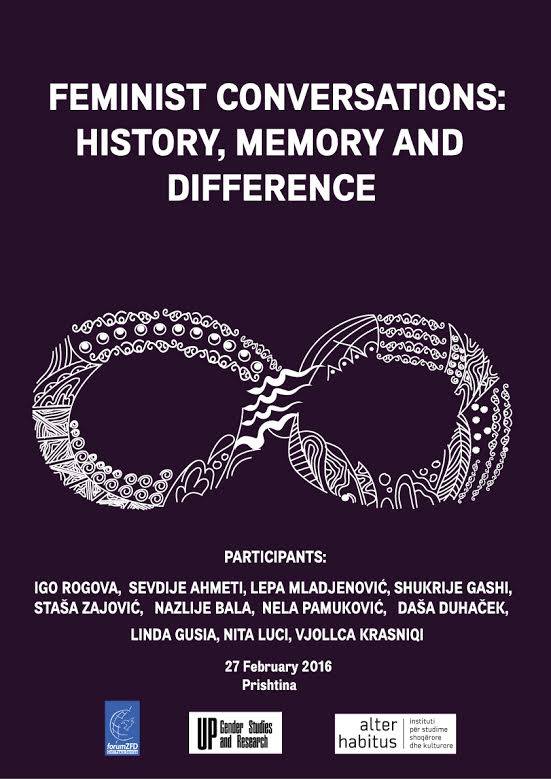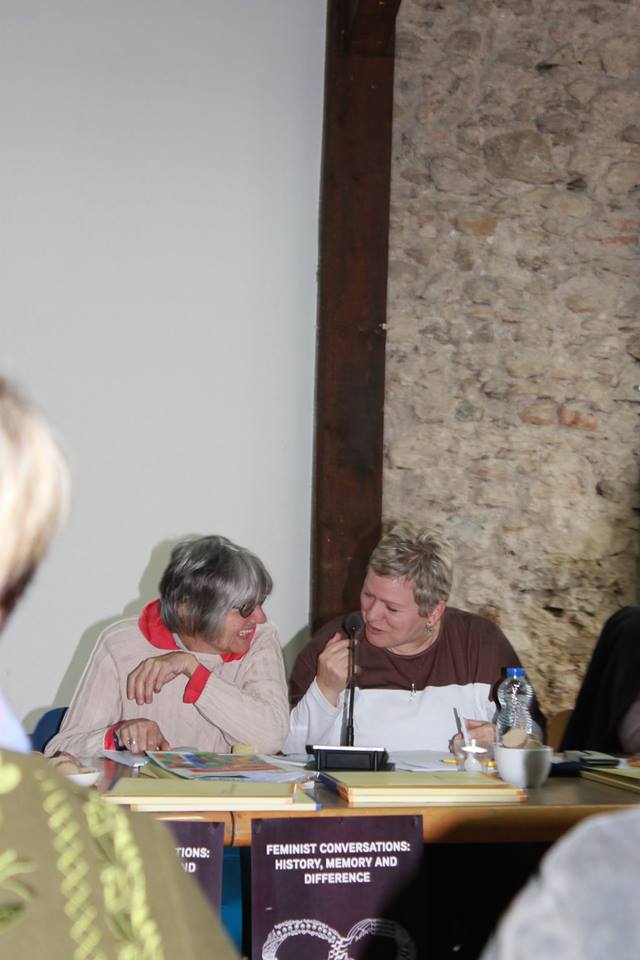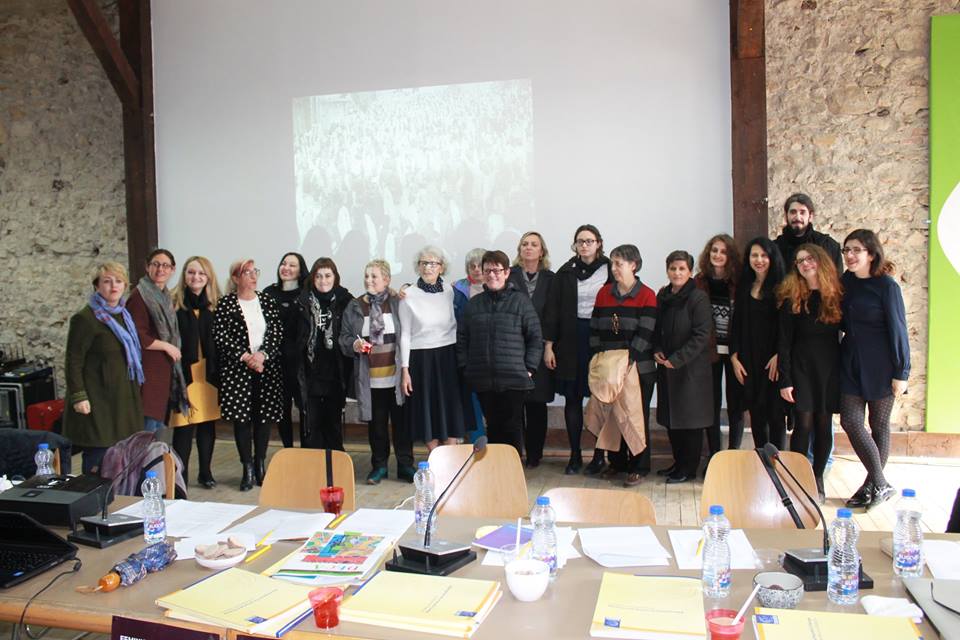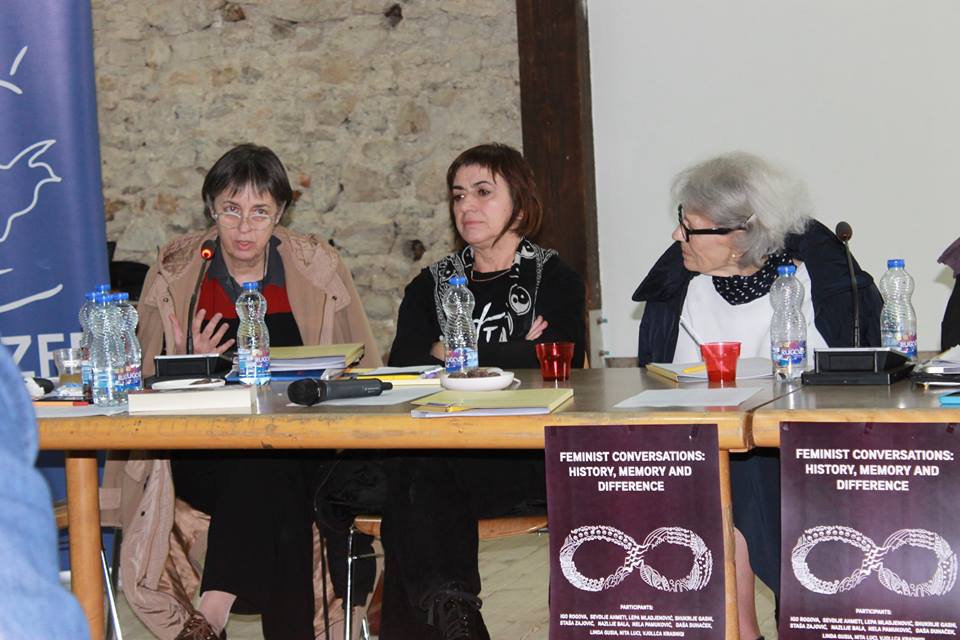Feminist Conversions: History, Memory and Difference is the 5thAtelier within the framework of the Memory Mapping Kosovo[1] project that explores official but contested memory sites and past events.The epistemology deployed in this work is premised on contrasting official memories, established historical narratives (e.g. history books, official discourses) and archive materials, as well as those alternative and marginalised, to enable a critical reading of various pasts. Therefore, Memory Mapping Kosovo aims a production of a new multi-perspective understanding of memory and memorialization in Kosovo.
Women’s activism, everyday life experiences, mobilization and networking are in most part historically excluded from formal political space, commemoration and dominant meta-narratives. In the hegemonic national narratives, and history,women have predominantly been represented as grieving mothers and/or victims of war. Women’s experiences of struggle and resistance, peace building efforts and the ways in which their mobilisation affected the transformation of society have altogether been secluded from history and remembrance practices.
Following the violent break-up of Socialist Yugoslavia and the wars of the 1990swomen were not mere spectators and victims. They mobilised in resistance to war and violent nationalist politics. This action entailed cooperation across ethnic divides and borders. Thus women’s activism has constituted women as agents of change and politics, and power.Moreover, women’s public activism – forged through cooperation, solidarity and sisterhood, as well as contestation – fostered development of a feminist movement in the region.
From today’s vantage point two questions arise. First, when looking at women’s agency in conflicts and war history, and memorialisation, one is to ask why women’s mobilisation and resistance gets marginalised, suppressed and forgotten in post-war and state building formations. Second, as the national divides in conflicts remain wide, how did women activists manage to overcome such divides, as well as negotiate and workout the ambiguity that national identity entails? The Atelier aims at providing some answers to these questions. By doing so it believes it will challenge the exclusion and marginalisation of women’s agency and their heterogeneous experiences in the 1990s throughout the spaces of post-Socialist Yugoslavia.
A day-long panel discussion with women activists form Kosovo and region will narrate and account histories and the memory of women’s activism as remembered and interpreted by women activists themselves. Followed with a discussion on feminism and difference, the Atelier desires to make visible the multiplicity and complexity of women’s narratives of activism, mobilisation, cooperation, as well as experiences of war and post-war reconstruction.
Participants: Igo Rogova, Rada Iveković, Sevdije Ahmeti, Lepa Mladjenović, Shukrije Gashi, Staša Zajović, Nazlije Bala, Nela Pamuković, Safete Rogova, Dunja Blažević, Daša Duhašek, Biljana Kašić, Suzana Qapriqi.
Moderators: Linda Gusia, Nita Luci, Vjollca Krasniqi
_________
[1]Memory Mapping Kosovo is an on-going three-year collaborative project – between forumZFD – Kosovo Program, Alter Habitus – Institute for Studies in Society and Culture, and the University Program for Gender Studies and Research (UP).
Read the transcript here: Feminist Conversations






